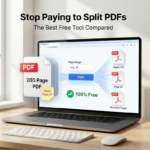By 2025, companies will operate with gigabytes of customer data, sales data, and financial data on a daily basis. The control of these disparate systems creates inefficiencies, errors, and delays in decision-making. The issue is addressed by Odoo Integration services that bridge the gap between CRM, eCommerce, and accounting systems into a unified ecosystem.
This enables companies to automate processes, minimize human errors, and access real-time data. Teams can manage orders, inventory, and finance using the same interface through Odoo eCommerce integration and ERP connectivity.
AD
The most efficient Odoo implementation strategy will help the company to perform proper reporting, quicken the processing it will also improve the customer experience, and be indispensable to a business that is looking to grow effectively.
Why Odoo Integration is Essential
Silos in business processes cannot be tolerated, and businesses are not able to tolerate repetition of business processes, data inconsistency, and reporting delays brought on board by disconnected systems. Integration of Odoo consolidates major business processes, aligning customer, sales, and financial records with the relevant departments.
- Centralized data: Customer, sales, and financial data are consolidated, resulting in fewer instances of duplication.
- Automation of processes: Minimizes manual tasks and repetitive work, allowing teams to focus on strategic work.
- Real-time insights: Immediate visibility into inventory, sales, and accounting for informed decisions.
- Enhanced customer experience: Precise orders, prompt responses, and personalized interactions.
- Scalability: Supports an increasing flow of transactions and team expansion without introducing new bottlenecks.
Odoo integrates all business systems to facilitate operational efficiency, minimize human error, and enable smarter decision-making.
Best Practices: Odoo Integrates with CRM to Boost Operations
Odoo CRM enables businesses to effectively coordinate leads, contacts, and sales operations. Proper integration will allow teams to monitor interactions, pipeline monitoring and automation without reevaluating the system and reselecting.
Lead and Contact Synchronization
Keeping customer information up-to-date is essential for sales. Matching leads and contacts ensures that the team keeps accurate records and eliminates duplicates.
- Automatic updates for new and existing contacts.
- Real-time reflection of customer information across CRM and ERP.
- Single source of truth for all customer data.
Activity and Interaction Tracking
Monitoring emails, calls and meetings in a central dashboard will enable sales personnel to rank their responsibilities as well as follow-ups.
- Logs all interactions automatically.
- Supports managerial oversight for better collaboration.
- Reminder alerts to follow ups pending or overdue.
Sales Pipeline Management
Consolidating a system allows to visualize the opportunities at any stage and thus helping the teams predict revenue and deal with the stagnated deals before they are left.
- Dashboard views of conversion rates and deal status.
- Alerts for delayed opportunities.
- Favours proper revenue forecasting.
Integration of Marketing Automation.
Integrating CRM campaigns with Odoo will enable marketing and sales to coexist in harmony, increasing engagement and conversion rates.
- Individual campaigns on the basis of ERP information.
- Automatic campaign result and lead synchronization.
- Measurement of ROI and effectiveness of marketing efforts.
Reporting and Analytics
The CRM integration with Odoo enables the full scope of reporting, which entails the amalgamation of customer, sales and financial data to support improved decision-making.
- Single dashboards of important metrics.
- Insights into lead conversion and sales performance.
- Supports strategy development and process optimization.
How to Boost Sales with Odoo Integration with eCommerce?
An integration of eCommerce systems, such as Shopify, WooCommerce, or Magento, and Odoo assists companies in organizing the order, inventory, and customer information online. Stock accuracy, quicker process of orders, and more customer satisfaction are ensured by real time synchronization.
Automated Order Processing
Gauging Odoo and e-commerce solutions (Shopify, WooCommerce, or Magento) ensures that all online orders are automatically synced to the ERP system.
- Orders are taken immediately, and thus no errors in manual entry.
- Inquiry is reduced, and customers are informed through real time status updates.
- Streamlined fulfillment makes shipping go faster and makes customers more satisfied.
- Supports the volume of high orders in peak seasons without delays.
Real-Time Inventory Management
One of the most important elements of sales maximization is proper stocking in any channel. The integration with Odoo helps to keep stocks current, avoids overselling and stock-outs.
- Automatic stock updates across all sales platforms.
- Low inventory alerts to reorder.
- Efficient warehouse performance minimizes storage wastage and carrying.
- Real time management of various warehouses and locations.
Product and Pricing Synchronization
Repeatability of product information and pricing instills customer trust and generates a repeat buying habit. The combination of e-commerce and Odoo ensures that the updates on all channels are correct.
- Descriptions, images, and pricing of products have a real-time reflection on all platforms.
- Promotions, discounts and bundles are automatically applied.
- Dynamic pricing by inventory and by demand.
- Minimizes the possible errors caused by manual updates.
Unified Customer Account Management
Retention and satisfaction to customers will rise as businesses will have full and precise records in all sales channels.
- Integrated profiles are used to track purchase history, tastes and loyalty points.
- Facilitates individual suggestions, offers, and promotions.
- Accepts loyalty programs and target marketing.
- Assist in answering customer inquiries quickly with a full view of orders and payments.
Analytics and Insights
Consolidated information is a valuable source of actionable insights for sales tactics and streamlined operations.
- Identify top-selling products, slow movers, and seasonal trends.
- Monitor customer behavior and buying patterns for strategic promotions.
- Measure sales performance by channel, region, or product category.
- Aids decision-making based on data to plan the inventory and marketing efforts.
Crucial Ways to Streamline Records with Odoo Integration with Accounting Platforms
Manual management of financial records across various platforms is also time-consuming and is likely to result in mistakes. The integration of Odoo and accounting platforms will help automate basic financial processes, minimize discrepancies, and ensure compliance.
Businesses can monitor all transactions in real-time, produce accurate reports, and focus on strategic decision-making instead of wasting hours on reconciliation. It is also possible to more effectively integrate accounting and Odoo, allowing finance, sales, and operations personnel to collaborate and gain a global understanding of the company’s financial state. Partnering with an experienced Odoo development company ensures seamless implementation, customization, and ongoing support for such integrations.
Automated Invoicing and Billing
Automated invoicing is considered to be one of the greatest benefits of combining Odoo and accounting platforms. With sales and eCommerce platforms connected to the ERP, there is no need to enter invoices manually; they are created automatically based on orders and services.
- Automatically create invoices for online and offline sales.
- Send invoice reminders and invoice notifications to customers in real-time.
- Efficient error reduction in the billing process and cash flow.
- Accept recurring invoices and subscription-based billing.
Payment Tracking and Reconciliation
It can be challenging to track incoming and outgoing payments across platforms. With the Odoo integration, all transactions will be automatically recorded, making reconciliation easy and precise.
- Track payments in real-time from multiple sales channels.
- Automatically match invoices to payments to save on manual effort.
- Maintain up-to-date receivables and payables.
- Alert finance teams about delayed or overdue payments for timely follow-ups.
Financial Reporting and Analytics
One of the advantages of integration is the ability to create audit-ready reports and analytics without requiring cross-platform switching. Odoo integrates data on sales, CRM, and operations to provide a comprehensive view of financial performance.
- Generate real-time profit & loss, balance sheets, and cash flow statements.
- Monitor budget versus actual spending across departments.
- Recognize financial trends and financial anomalies prior to their development into problems.
- Customize dashboards for executives, finance teams, and operations managers.
Expense Management
Businesses can manage operational expenses more effectively with Odoo integration, which streamlines expense tracking.
- Categorize and record all expenses automatically.
- Integrate employee reimbursements and vendor payments.
- Track overhead costs in real-time for better budgeting.
- Minimize the mistakes related to manual entry or misallocation of expenses.
Predictive Financial Insights
Businesses can make better and more informed financial decisions with integrated information across multiple platforms, which can be used to drive predictive analytics.
- Project cash flow and revenue patterns on the basis of historical and real-time data.
- Plan budgets and allocate resources efficiently.
- Detect potential financial risks or shortfalls early.
- Support strategic decision-making for growth and expansion.
Compliance and Audit Readiness
Odoo integration helps ensure financial operations comply with local laws and regulations.
- Maintain accurate and up-to-date records for tax purposes.
- Generate audit-ready documentation automatically.
- Reduce human errors and discrepancies in regulatory filings.
- Automate audits through a single source of truth within all records.
Conclusion
The use of Odoo to integrate CRM, e-commerce, and accounting platforms changes the way businesses are conducted. Odoo Integration solutions automate operations, save on labor, and deliver real-time data to enhance decision-making.
The best Odoo integration will enable companies to increase sales, optimize inventory, maintain accurate financial records, and enhance the customer experience.
For companies seeking to effectively expand in 2025 and beyond, integrating with Odoo is not merely a technical upgrade but a strategic requirement to maintain operational efficiency, growth, and agility.









